#you kept me sane
Explore tagged Tumblr posts
Text
I swear, I don't know why I go looking for fic when it inevitably breaks my brain.
This college AU is claiming it's a period piece... set in the mid to late 2000s... and the characters are millenials. The tags even say "it's the mid to late 2000s so [character] has a flip phone".
Do... do they know how numbers work? That the mid 2000s would be, oh I don't know, starting around 2050? I thought they might mean the 1900s but referencing flip phones... uh, yeah, no. Do they mean the early 2000s? Perhaps through around 2010? That would make so much more sense, but they kept repeating "mid to late" so I can't help but feel they were fixated on that time period.
(Don't get me started on it being a "period piece". Someone read a review of Bridgerton and acquired some new words, I guess.)
I swear, I have found exactly one (1) singular decent piece of fic in this fandom so far. There have to be good ones out there, right? Right? Even if 90% of everything is crap, surely there's a 10% waiting for me, right?
Honestly, I don't know if I have it in me to try and sift through the 90%.
#fanfic can be so hit or miss#but it seems more miss than hit lately#i'm so glad i found a few good (great) writers in dmmd#you kept me sane
2 notes
·
View notes
Text
Thank you tumblr and my fellow Buddy Daddy fans for being my free therapy from the angst that episode 10 gave us.
#buddy daddies#thank goodness for the fanarts memes fanfics analysis and etc#you kept me sane#thank you all#Rei Suwa#Kazuki Kurusu#miri unasaka
21 notes
·
View notes
Text
Here's to one of the few last places on the web with no ads, no algorithm, no corporations, no censorship, just the creative minds of passionate fans. Volunteer run, community supported.
o7 Never change, ao3
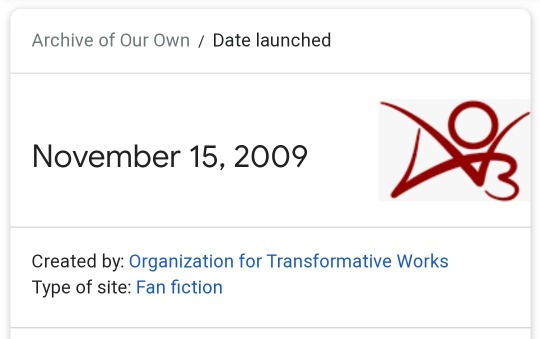
Happy birthday to AO3 🎂🎉
#HAPPY BIRTHDAY AO3#YOURE THE REASON I GOT MYSELF THROUGH COLLEGE#YOU KEPT ME SANE#and ever since its rare I skip a day without opening ao3#ao3
157K notes
·
View notes
Text
you were so fucking full of life like I just don’t fucking understand
#Tristan talks#sam bam thank you ma’am#I keep feeling like im waiting for this to end and for you to come back#I miss you beyond words. fucking. beyond anything I could express#I feel so fucking sick#I just want to talk to you again#it feels like you should be joining call any minute now#sometimes I feel like I could just unmute when im in bed and start talking and you’d be there but you aren’t#I don’t understand#you’re SUPPOSED to be here#with me right fucking now you’re SUPPOSES to fucking be with me right now#im supposed to be hearing about how your day was at nursing school right now#I really think im going to lose my mind eventually#I don’t know if im going to make it without you I really don’t#you were my rock you were everything#you kept me sane#and now you are gone#I can’t help but feel a little cursed#like I think im just going to be alone and lonely and desperate forever#I wish I could sleep
1 note
·
View note
Text
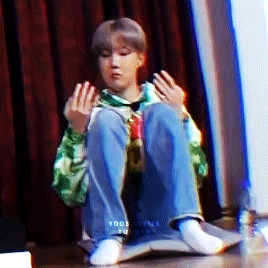

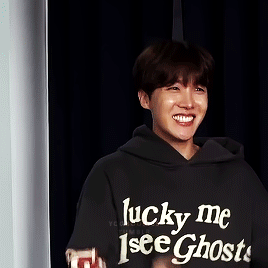

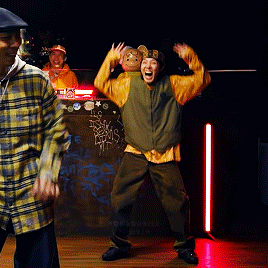
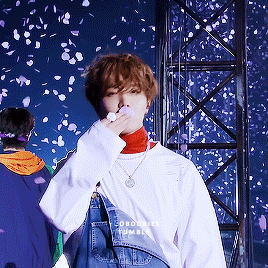
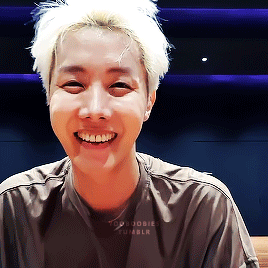

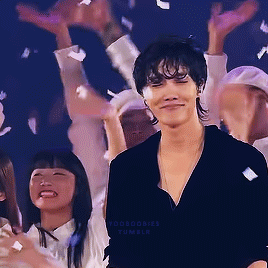



shaped like love, like sunshine, like happiness - a boundle of joy | dedicated for @raplinenthusiasts tiny tan (3/7)
(cr. 0613data}
#bts#btsgif#dailybts#btsedit#hoseok#jung hoseok#bts hoseok#jhope#bts jhope#tinyoon#rékagif#usersky#julia darling - i promised you something as a belated present! and it just felt right dedicating this to you#you kept me sane with your waiting for hobi posts and it just feels right - this set belongs to you#i hope you find as much joy in this as i had while making it - he is just love and happiness and warm sunshine all around! like you:)
1K notes
·
View notes
Text
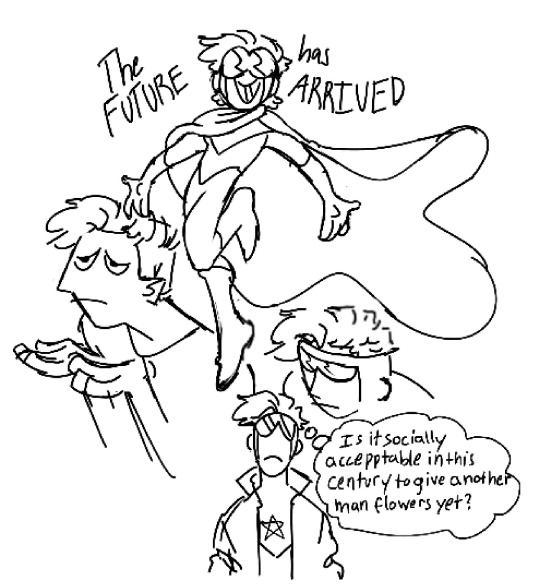
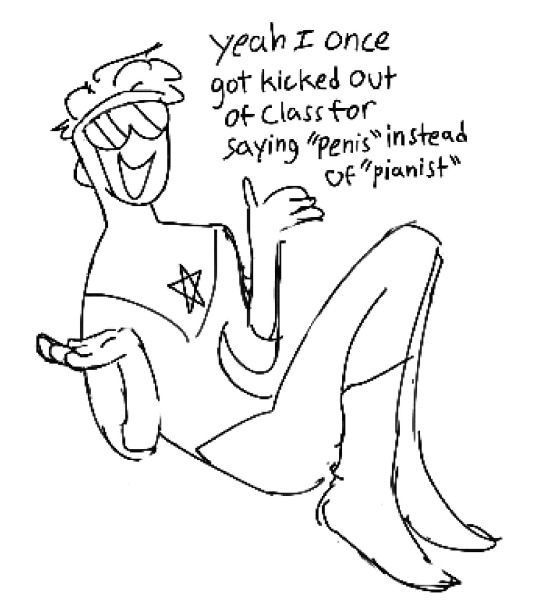
mayb i’ll post my boosters here too
#im kinda back mayb#i missed interacting with ppl on here too much yall are so fun#booster gold#DC#i wish i had time to color them but alas.#speaking of which if anyone wants to color these go ahead idm at all my only request is that you show me cause i would be delighted asf#to see that#my house is still unsafe but im playin it rlly cautiously#😎#been having the worst fucking week of my entire life it’s been awful but the little heroes in my brain have kept me sane#sorry for venting slightly in the tags dont read em
1K notes
·
View notes
Text
thinking of the boys and honestly?? just imagine since they traversed time and space for mc they have to be a little unhinged right? imagine the lifetimes that passed them by where they may have missed mc, weren’t able to find her or get to her in time before she dies in that timeline. the constant agony of searching forever for someone who is fleeting just like the sands of time. growing older and decaying only to be reborn again in a constant cycle. and never in the same place or at the same time. constantly having to travel the world to try and find her again. and the few lucky times mc is near enough for them to establish themselves in her life before they lose her again. but the time they get to spend with her is never enough and is so fleeting before they’re back to wandering the world looking for her soul again
#it reminds me of fallen i think it was. where the girl reincarnated and the angel kept finding her in every life time#and like you can’t tell they’re perfectly sane after having to do that over and over again#searching for her and finding her and watching her inevitably die#eons over eons like these men have to crack at some point#and in my mind they crack to become possessive yanderes bc that’s the energy they give#but also what if they’re mad at mc for constantly going through this cycle and leaving them even though she’s not choosing to#i really think maybe that’s why Sylus reacted the way he did when we first met#like man was PISSED. in love but you could tell he was hurt and angry and maybe they have every right to be#lads#love and deepspace#lads sylus#sylus#love and deepspace sylus#lnds zayne#zayne love and deepspace#dr zayne#rafayel#lads rafayel#xavier love and deepspace#lads xavier
97 notes
·
View notes
Text

It was an amazing journey! Thank you, Horikoshi Kohei! QWQ
#my art#mha#bnha#midoriya izuku#man.... I've been reading it for almost 10 years now... I guess I started in 2015? damn... it was so long ago#this is the last story from the past that I've kept reading from week to week#but I truly happy that this story was with me in my joyful times and in the darkest keeping me sane and giving me a reason to keep living#already missing you MHA QWQ#o(-(#my hero academia#boku no hero academia
130 notes
·
View notes
Note
I love how you draw lineart firstly and seeing you draw your tav is really cute- question is do they have a name or any lore :eyes:
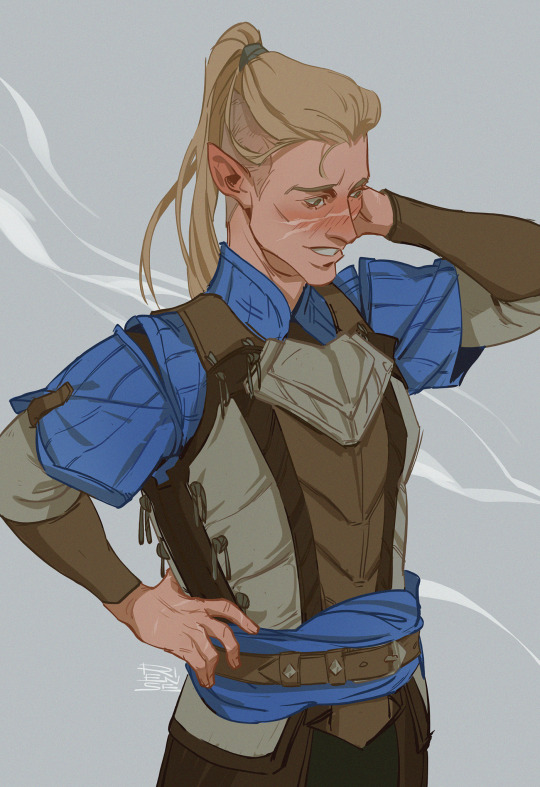
When someone says you are cute :’’>
Hey, I want you to know, Anon, that your message was just on time. This week was…a little rough. And thinking about my Tav (as well as drawing him) was such a great distraction. Thank you!!
And yes, he has a name - Kyran. A lawful good paladin boi and an absolute sunshine for me. As always Im at a loss as to what to tell you about him. This happens to me every time someone asks about my OCs :’’D also i am at that point when I change his lore details few time a day ahahahhh
#didn’t know I am so exhausted until now#sorry Anon I am completely useless atm#but I am very grateful for your ask#you unknowingly inspired me to draw him and this kept me sane for past few days#✨💖✨#replies#bg3 tav#my ocs#my art
231 notes
·
View notes
Text
like a dog with a bird at your door
buck/eddie | 51k | rated e
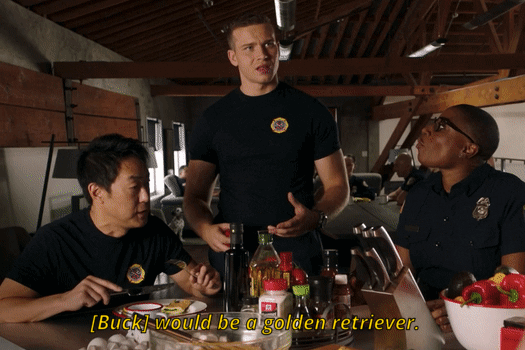
The kid with blood pouring down his shins is not so far from the dog lonely enough that he thinks breaking his housetraining is worth it for the ten minutes of berating that come with it, the ten minutes of undivided, if reluctant, attention. Buck thinks, sometimes, that at least he wasn’t the kind of puppy that gets put in a sack and drowned at birth. He wasn’t always unwanted. And he isn’t anymore.
or, evan “i love you like a dog” buckley has only ever known how to love like, well, a dog, but maybe eddie diaz is the kinda guy to give a flea-bitten mongrel a forever home
read on ao3

#a healthy mix of crack and big feelings i think#EDIT: this is not pet play lol the ao3 tags are more explanatory 😭#posting and going to sleep because i spent over two months on this and im a little anxious lol#i love you like a dog#911 fic#buddie fic#911#buddie#evan buckley#eddie diaz#writing tag#mine#also. every single one of you that kept me sane through this. and sent me dog posts n songs n poems n art. i love u so fucking much#and in every way but literal im curling up at the foot of your bed tonight
286 notes
·
View notes
Note
I would personally love to read your 30 page dissertation on privilege, bigotry, and misplaced abuse trauma 🙏
Haha, I haven't actually written it but challenge accepted! This ask is referring to a comment on this post, for reference. It goes without saying, as will become apparent in this post, that I condemn JK Rowling's bigotry and don't support her in any way. As always, TERFs will be blocked on sight so DBI (don't bother interacting).
OK, so.
A bit about Rowling
I'm going to try my best not to do any armchair diagnosing, and to stick with existing statements Rowling has made about her abuse and stance on feminism. A lot of Rowling's current bigotry and biases - her assertion of the gender binary in ways that uphold patriarchal power structures, her (upper?) middle class privilege blinders - are compounded by her abuse trauma in ways that perpetuate abusive behavior, but were also always present to some degree and made apparent in her approach to a number of characters in Harry Potter. This came up in a post about SWM and the sexual assault that occurs, and my reading of it as having been written to illustrate that Snape was unpopular in school, instead of as a condemnation of James and Sirius as bullies. I'm not the first to point out that Rowling wrote Snape unkindly, and she also speaks of him without sympathy and with judgment in interviews. This reveals a lot more problematic aspects of her thinking than it appears to at first glance, not to mention that this approach to writing a character is something I think is counterproductive and ultimately detrimental to the text.
Rowling grew up middle class, had an unhappy adolescence, and a strained relationship with her father. She went to the University of Exeter, which is basically where upper class kids who couldn't get into Oxford or Cambridge go, and where she says she did little schoolwork and spent a year studying abroad in Paris. This implies a fairly comfortable upbringing, especially as most students who are struggling financially are unable to afford doing a study abroad year (all of this information is on her wikipedia page, btw). She got married in a vulnerable state - having moved to Portugal after her mother's death and being laid off from her job - to an abusive man named Jorge Arantes. After she eventually left him, she claimed to have been very poor, moving to Edinburgh as a single mother.
Her description of poverty, however, involved writing at a cafe every day in Edinburgh, an expensive choice in an expensive city. Anyone on the dole (welfare) in the 90s wouldn't have been able to do that, nor someone living paycheck to paycheck and counting pennies. This is the idea of poverty of someone who's used to a solidly (upper???) middle class lifestyle (I spent time in Edinburgh during college and despite having worked alongside classes I could barely afford more than a coffee and maybe a biscuit at the local cafe if I went daily). Being a single mother is hard no matter what, acknowledment to that, but the press - and I think Rowling herself - played up the narrative of the poor, struggling mother living hand to mouth to romanticize her story. Writing at cafes sounds like the idea of poverty of someone who has a lot of privilege, but is a luxury to someone living in actual poverty, especially in England in the years after Thatcher.
There's a phenomenon known as "white tears" that anyone who's studied racism in the U.S. will be familiar with, of white women exploiting their social status positing themselves as vulnerable, ill fated victims in order to gain sympathy. There's a similar phenomenon in the UK, that I think Rowling turned to her advantage with her own narrative, leaning on her victimhood as a domestic abuse survivor and exaggerating her poverty in Edinburgh in order to build a sympathetic brand for herself. This served her as the author of a children's book series, and as the HP series was released, she ensured there were press events where she read to children, and was thus constantly perceived by the public through photos of her as the quintessential matriarch to young readers, the heroic mother and survivor who is perpetually surrounded by loving children looking up at her with admiration.
This became problematic when she began to weaponize this status she had built and turn it against trans people in order to perpetuate her personal bigotry. I can't say how much of this was deliberate and calculated, and how much of it was fed by radicalization and the psychological effects of fame such as entitlement and the inability to cope with differing opinions from her own. I also can't say how much of this has been a mis-directed projection of unprocessed abuse trauma, which can often perpetuate a cycle of abuse through victims who enact it on others because it's what they've learned to expect from the world and is therefore also the primary way they know how to interact with others (or rather that abuse victims struggle to regulate their emotions in healthy and constructive ways and often end up doing so in destructive - or even self-destructive - ones). What I can say is that there's a significance in her choice to publicly pursue a personal bias in the ways she has, and that she's consistently relied on her White Tears to dig her heels in, in the face of opposing viewpoints.
How is all this reflected in the HP books? I'll do my best to keep this reasonably brief.
Misplaced abuse trauma
The most obvious indications of unprocessed abuse trauma are the myriad examples of excused and under-rug-swept abusive behaviors throughout the books. To understand these we must first understand how abuse is perceived from the victim's perspective - and this can be difficult, because abuse is notoriously (and insidiously) difficult to understand the dynamics of if you haven't experienced it firsthand. It can be difficult to understand even if you have experienced it, and a lot of the work therapists do with abuse survivors is centered around this kind of processing.
All people struggle to see someone they love in a bad light, or as doing things that only "bad people" would do, and abuse victims are no exception. Abusive behavior gets excused because the person perpetuating it is framed by the victim as being justified in their actions (often by blaming themselves) or because they're perceived as a good person so they couldn't possibly do harm. It's a common misconception that abusers are bad, evil people - most of the time they're well liked people with a lot of friends, who are also emotionally damaged and have unhealthy tendencies to exert control over others in moments of emotional dysregulation. These moments usually happen behind closed doors, because even the abuser tends to feel ashamed of themselves when they happen (and obviously that doesn't excuse or justify their behavior in any way).
Abusers still love their children/partners/etc. and also have warm, loving moments where they bond with their victims. There's just also a power dynamic in which these moments primarily happen when it suits the abuser. Victims develop a mindset in which these moments are focused on and used to try to fill the painful gaps left by the bad moments, the ones where they're hurt emotionally or physically. Our brains rely on denial and selective memory to deal with trauma, so abusive behavior gets excused, downplayed, or ignored by being unprocessed and unaddressed. Until this trauma is processed in a healthy way and the survivor learns how to identify and deal with their experiences, they'll keep repeating and projecting them. How the trauma is processed affects not only the victim, but how they're perceived - if they show signs of trauma in unsympathetic ways that make others uncomfortable and ask them to have patience and empathy, they're a "bad victim." If they bear their trauma with grace and show minimal signs of it and don't make anyone uncomfortable, they're a "good victim." (Many abusers are, in fact, good victims outwardly, and bad victims in their home lives - which, again, doesn't justify or excuse their actions, but it does give an insight into how abuse trauma manifests.)
The tendency to downplay, excuse, or ignore abusive behavior shows up again and again throught the HP books. In PoA Sirius breaks Ron's leg in his determination to get Pettigrew - who's in Ron's pocket - into the Shrieking Shack. It's actually quite a violent moment, Sirius yanking Ron with force because his leg being stuck under a branch is keeping Sirius from being able to drag him into the tunnel. But once Harry realizes Sirius is not a mass murderer and accepts him as his godfather, there's no addressing of this casual violence. Sirius doesn't apologize to Ron, and it's Lupin who puts his leg in a splint* (never mind that Ron is then tied to Lupin who hasn't taken his potion at the full moon and this endangers Ron's life directly). The point here isn't Sirius' character, but how the narrative treats his actions - and Ron.
*Even though Sirius has his wand on him too, which is never really explained? How did he get his wand back? He wouldn't have been allowed it in Azkaban, so where did it come from? But I digress. That's a question for another post.
As soon as Sirius takes on the mantle of being Harry's godfather, his carelessness, violence, and the damage he caused are forgiven - much like how abuse victims will explain away their abusers' actions and minimize them. Ron doesn't show any signs of trauma after this incident, or any wariness of Sirius, which is unrealistic and uncharacteristic, but fits in with Rowling's writing style when you consider her projected abuse trauma and the mindset she's likely to be writing from as a result. Sirius does nothing to assure Ron that he won't hurt him again in the future. In fact, all he says to him is indirectly, in a letter to Harry:
“I thought your friend Ron might like to keep this owl, as it’s my fault he no longer has a rat.”
-Prisoner of Azkaban, Ch. 22
He doesn't acknowledge the harm he inflicted, nor does he apologize for his actions. Instead he gifts Ron an owl he found (which, off topic, is objectively funny - Sirius found an owl and just said "keep it I guess"). He clarifies this owl is meant to replace his pet who turned out to be a murderous traitor in disguise, but makes no mention of wanting to earn back trust. Again, this isn't about Sirius as a character, who's deliberately written with these flaws. My point is to highlight the ways that other characters react to him and how those behaviors seem to echo the reactions of an abuse victim to abusive situations, and the blinders they require for survival. Kind of like how we never see Ron confront the reality that he spent several years sharing his food, bed, and life with a 30 year old man in rat form. Egregious breaches of trust and safety are sidestepped silently, accepted, and ignored.
Again and again physical and verbal violence is addressed minimally or not at all in Harry Potter. Lupin has his turn when he argues with Harry in Deathly Hallows. Harry tells him to go home to his son instead of abandoning him, but Lupin is agitated and resistant to the idea, his behavior signifying that his trauma may be triggered.
‘I’d never have believed this,’ Harry said. ‘The man who taught me to fight Dementors - a coward.’ Lupin drew his wand so fast that Harry had barely reached for his own; there was a loud bang and he felt himself flying backwards as if punched; as he slammed into the kitchen wall and slid to the floor, he glimpsed the tail of Lupin’s cloak disappearing round the door. -Deathly Hallows, Ch. 11
Lupin never apologizes or acknowledges he was wrong to do this, and the closest he gets to it is a passive aggressive statement on the radio that he has no way of knowing was actually heard by Harry:
‘And what would you say to Harry if you knew he was listening, Romulus?’ ‘I’d tell him we’re all with him in spirit,’ said Lupin, then hesitated slightly. ‘And I’d tell him to follow his instincts, which are good and nearly always right.’
Deathly Hallows, Ch. 22
Again, the point here isn't to discuss Lupin's character, but that the author has chosen to skim over his violence and continue to write him as heroic without him having to take responsibility for his actions. We're meant to empathize with his trauma and continue to see him as a sort of parental figure, but there's no exploration or acknowledgment of how it might affect Harry that the last remaining friend of his father's, his once favorite teacher, enacted violence on him the second Harry challenged him, and how this might have triggered Harry's own abuse trauma after enduring years of violence at the Dursleys. There's merely a dramatic moment that results in assault, that is then skirted past, unaddressed, and the narratives simply moves on. It feels like the literary equivalent of a fighting couple where one partner hits the other, and instead of apologizing they just go back to business as usual once they've calmed down; the argument is never resolved, just swept under the rug with all the others ones like it.
Harry, meanwhile, is an abuse victim who bears no mark of it. The Dursleys abuse him emotionally as a matter of course, starve him on numerous occasions, there are clear implications that Vernon is physically violent with him, as is Dudley, to the point where Harry is socially isolated because Dudley's gang intimidates anyone who might want to be his friend. This also prevents any outsiders from getting close enough to Harry to recognize the abuse and calling CPS on the Dursleys. They aren't taken to task by anyone, unless you count Dumbledore's passive aggressive hint to them about keeping Harry in a cupboard, or the threat from the Order that's given at the end of the OoTP:
‘We thought we’d just have a few words with you about Harry,’ said Mr Weasley, still smiling. ‘Yeah,’ growled Moody. ‘About how he’s treated when he’s at your place.’ Uncle Vernon’s moustache seemed to bristle with indignation. Possibly because the bowler hat gave him the entirely mistaken impression that he was dealing with a kindred spirit, he addressed himself to Moody. ‘I am not aware that it is any of your business what goes on in my house -‘ ‘I expect what you’re not aware of would fill several books, Dursley,’ growled Moody. ‘Anyway, that’s not the point,’ interjected Tonks, whose pink hair seemed to offend Aunt Petunia more than all the rest put together, for she closed her eyes rather than look at her. ‘The point is, if we find out you’ve been horrible to Harry -‘ ‘- And make no mistake, we’ll hear about it,’ added Lupin pleasantly. ‘Yes,’ said Mr Weasley, ‘even if you won’t let Harry use the fellytone -‘ ‘Telephone,’ whispered Hermione. ‘- Yeah, if we get any hint that Potter’s been mistreated in any way, you’ll have us to answer to,’ said Moody. Uncle Vernon swelled ominously. His sense of outrage seemed to outweigh even his fear of this bunch of oddballs. ‘Are you threatening me, sir?’ he said, so loudly that passers-by actually turned to stare. ‘Yes, I am,’ said Mad-Eye, who seemed rather pleased that Uncle Vernon had grasped this fact so quickly.’
-Order of the Phoenix, Ch. 38
Of course, this doesn't happen until Harry is almost 16 and only a year away from getting out of Privet Drive anyway. Yet Harry has no anxiety, no panic attacks, no social anxiety, and shows no triggered behavior. Even after Cedric dies he has very limited PTSD symptoms. The only time he acts out is in OoTP, and his behavior is explained away by the realization that Voldemort has been sharing his mind, and so his short fuse and "bad victim" behavior is attributed to a kind of possession, and not his own psyche. Harry is the fantasy of an abuse victim - the sympathetic orphan who bears no scars of his trauma. He's patient, bears his abuse with grace, and if anything he responds to it with cleverness and snark that endears the reader to him. He's a "good victim," but almost goes beyond that: Harry is almost a kind of projected fantasy of an abuse victim who wishes they could live their life and be themselves without the inherent trauma and its effects, even while continuing to be traumatized.
It's a recurring theme with a lot of characters that violence and emotional abuse/manipulation is excused and unresolved as a matter of course. Harry is shocked when he sees his dad and Sirius assault Snape in SWM, but he goes back to putting his father on a pedestal quickly, and without processing his feelings, while his empathy for Snape is short lived. Hagrid spends most of OoTP getting violently assaulted by Grawp but he doesn't mind it because he loves his brother, who's just big and stupid and can't help it ¯\_(ツ)_/¯. Hagrid also has a dysfunctional relationship with Harry and his friends, who he endangers on numerous occasions, and who have to take care of him when he's drunk or unable to manage his emotions and makes bad choices, despite being children. It's an imbalanced relationship in which Harry is often unsafe and required to do the emotional labor of an adult. Dumbledore exploits Harry's entire existence, as well as Snape's, but he only apologizes to one of them and even then just barely.
The list goes on an on, and the dynamic is always the same: the character perpetuating the violence is alleviated from blame or responsibility by the narrative overlooking their faults and skimming over their damaging actions. It's also worth noting that many of the characters who perpetuate abuse are parental figures to the protagonist (Sirius, Lupin, James, Dumbledore, Hagrid, the Dursleys), because it's hard not to feel like there's some degree of personal projection going on here on the author's part. The way the writing justifies and avoids addressing the dysfunction and abuse in these relationships is almost like a parallel for the battered partner/child who says it was their fault for saying or doing the wrong thing and they should know better and the abuser doesn't really mean it, they're very sensitive and can be so loving and, and, and.
SWM is interesting in that it seems to be the pinnacle of how Rowling sees Snape and characters like James and Sirius. Even in The Prince's Tale we barely see why Snape and Lily were "best friends," not just Cokeworth buddies, because as an author she viewed Snape's role as utilitarian to the story but without sympathy for him. SWM was about establishing that Snape was a loser; feeling sorry for him was incidental, and more about Harry's own character development, which ultimately doesn't even follow that thread through. James and Sirius weren't written in that scene to be exposed as abusive bullies, but to be shown as the cool kids in a British grammar school, the handsome privileged boys at the top of the social ladder.
What's fascinating about Rowling's writing of Snape is that she seems to project a lot of her own abuse trauma onto him but has continuously expressed a clear dislike of him both in her approach to writing him and in interviews. The text alludes to his difficult childhood and abusive father, which Rowling has confirmed in interviews, and through the Wizarding World website where it's stated that Snape's father "didn't hold back when it came to the whip" (and while Wizarding World and Pottermore aren't always reliable sources for canon material, they do have a vetting process so if something is stated as fact it tends to be canon, as opposed to content that's qualified by statements like "possibly" or "might be" etc. which denote them as unverified theories). Snape also displays triggered behavior in situations that evoke his trauma, such as in the Shrieking Shack in PoA and when Harry tries to hit him with a Levicorpus in HBP. All this to say, Snape is a character who is written as having survived abuse at home, assault at school, and who bears clear markers of trauma.
With all this in mind, he was written unkindly. I don't necessarily mean how he's consistently described as ugly and dark in ways that recall prejudiced gothic tropes of the demon lover, or the ways the reader is meant to see him through the biased lens of Harry, whose eyes we see the story through. Snape was written with no empathy, and as someone who is completely alone in the world. Even Dumbledore, the person whose trust he works to gain, and who he trusts, betrays and exploits him mortally. When Harry sees Snape's memories at the end of DH, there's nothing in there that shows he was ever lovable, or his vulnerability and path to radicalization, or that Lily loved him as the best friend she said he was to her. Even when he's sacrificed his life and it's revealed to the reader that he's done so, and done it in the service of love - the central theme of the HP books - he's not granted the grace of being shown as having any redeeming qualities, except that he loved Lily deeply enough to dedicate his life to protecting her son (and grew to believe in Dumbledore's cause in the process), but this love is shown only through regret after her death, not through any expression of it during their friendship.
The opposite of Harry as the "good victim," Snape is the "bad victim," the abuse survivor who is defensive, unfriendly, unkind, and reflects a socialization that absorbed all he was taught through mistreatment. Ultimately, the good vicitim is good because their trauma doesn't burden others with its visibility, and Snape is the bad victim because his trauma asks patience and understanding of others while he struggles to show kindness and grace. He runs to help when he hears a scream upstairs, he tells Dumbledore "only those I could not save," but he's outwardly unkind and at times downright hostile, which means the reader has to put in critical thought and analyze the text before being able to extend him sympathy. In short, he takes work, which makes him a bad victim. This is also why so much of the larger fandom harbors a vitriolic hatred for him and feels absolved of having to put that work in.
And while there's a lesson in there that even the surliest of people can turn out to be brave and have an immeasurable capacity for love, the narrative still shows no interest, even in his deepest relationship, in Snape as a person who his best friend had affection for beyond being her only source of information about Hogwarts, or as someone Dumbledore saw more in than a clever and gifted wizard who could serve his cause. There's no curiosity in the writing when it comes to Snape, no kindness toward him, and Rowling has shown time and again that she still judges him.
What's interesting about this is that Snape is also the character who the most trauma and abuse seems to be heaped on, despite Harry's journey, and all of these aspects of him seem to be unaddressed, and if they're ever touched it has no real impact or affect on the characters or the narrative. It's almost like Rowling projected her worst trauma onto him and then resented him for representing her experiences. I would posit that perhaps what she really dislikes about Snape is that he's a representation of her own unprocessed trauma, of the ugly parts of trauma that are messy and painful, but I feel that's getting a bit too close to armchair psychoanalyzing so I'll leave that thought there and let you come to your own conclusions.
Privilege
The structure of the world in which Harry Potter exists relies on privilege. Wizards are a privileged group, singled out by their genetic advantage which gives them the ability to make their lives easier, and which most of them feel entitled about. They live in secret to protect themselves from having to use these abilities to help muggles, and because muggles would likely exploit them - of course most wizards also look down on muggles with condescension for their lack of magic (and ultimately we're talking about a bunch of Brits, so exploiting others and condescension is baked into the culture anyway). Added to this baseline social structure that is built on wizarding privilege is the character of Harry, who doesn't just learn that he's part of this privileged group, but that he's singled out as special among them. As soon as he's brought into the magical world, he's shown his Gringotts vault which is full of gold, so he also enjoys the privilege of wealth as soon as he learns he's doubly special.
There's yet another layer, which is the class dynamics within the wizarding world, which hinge on inherited privilege, ie. the privilege that comes with being pureblood or half-blood vs. being muggleborn. As Rowling works through this aspect of world building, she's consistently focused on the variety of ways her protagonist enjoys privilege. Moreover, in a series where the world-building is often half-baked and not thought through, an incredible amount of the work she did do is focused around establishing class dynamics and approaching them with a focus on privilege. This feels inherently British in some ways, though it does also challenge class systems to some degree.
Except that the class system remains intact at the end of the series. Voldemort is defeated as a villain, but his ideas of blood status aren't. The evil Harry fights against is a specific antagonist, not his ideas, and not the class dynamics that inform the variety of privileges he himself enjoys as a pureblood wizard with generational wealth. House elves aren't liberated, and are ultimately not only content to remain slaves, but fight alongside wizards and preserve the system that oppresses them. That itself is a signifier of Rowling's unchecked privilege: that she takes a local myth - house elves - in which magical creatures help with housework in exchange for milk/some kind of payment, co-opts this myth for her story and changes the terms of these creatures to be a deeply unethical one where they're neither working voluntarily nor paid but are instead enslaved. Most importantly, she posits that most of them are happy to be enslaved - and what reeks of privilege more than the idea that slaves enjoy their situation? It's a narrative that serves the enslaver and disenfranchises the enslaved even further.
Rowling's own class privilege is also reflected in how she writes poverty. For example, the Weasleys are consistently described as poor, but they actually seem to be doing alright. They have a lot of children, so most of their annual expenses like school supplies are secondhand, but that's pretty normal in a lot of families, even middle class ones. Mrs. Weasley is a stay at home mom who could be working if she wanted to, but in Rowling's determination to write Molly as quintessentially matriarchal, she overlooked this fact, the result being that the Weasleys seem to have a tight budget but don't seem to actually be poor. They own a large home and land around it, live comfortably as a single income household, and it's even mentioned in DH that of the trio it was Ron who struggled the most with scrounging for food when on the run, because he'd spent his whole life enjoying delicious, consistent, filling meals at home, not just at school.
Harry, meanwhile, is noted as thinking that he would happily give the Weasleys all the gold in his Gringotts vault, but knows they'll never accept it - and he leaves it at that. It's not until he gives his TriWizard winnings to Fred and George at the end of GoF that he tells them to get Ron new dress robes. Before that, he doesn't use any opportunity to give the Weasleys any gifts - in fact, while we see Harry give Ron and Hermione thoughtful Christmas gifts in the later books, there's no allusion to him giving them birthday gifts like they give him, or of him giving Molly or Arthur Christmas gifts despite always receiving them, including a hand-made family jumper. Despite growing up with so little, Harry is written as feeling an understandable excitement at receiving gifts, but it doesn't occur to him to give back - or rather it doesn't occur to Rowling, as the author, that a boy who comes from having nothing, who now has a vault full of gold, would think of using it to make others happy as they've made him. Despite her writing Harry's entire character arc to hinge on his willingness to sacrifice himself, this aspect of him gets overlooked when it comes to making the best of his privilege in his interpersonal relationships by thinking of others. Unsurprising once you consider that she claimed that writing in cafes was an experience of poverty after having studied at Exeter, and how her own privilege might inform how she approaches her characters and their choices (or lack thereof).
The subject of poverty in HP is laced with unconscious bias. The Weasleys are described as poor but have all they need, own land, and have the safety net of a wealthy family to fall back on. Like with Harry's character, there is, essentially, a moralism reflected in their comfort - they're good people, therefore they are comfortable, just as Harry is a good person, therefore wealth is bestowed on him that he didn't earn. In contrast to this is Snape, who grew up in a slum in an abusive home (and while poverty doesn't guarantee abuse, it's often traumatic and trauma inhibits emotional regulation which can lead to abuse). He bears the physical signs of poverty, such as poor hygiene and poor health (yellowed teeth, pallid skin), is unlikeable, lonely, and doomed by the narrative. Snape, while being described with these markers, is judged negatively and harshly both by Harry and James in their own times, as well as by the author herself who, despite having said that he's heroic and morally grey, has also said that Snape is a "deeply horrible person."
Just as Harry's virtue is signalled through his inherited wealth, Snape's markers of poverty establish him first as a foil in PS, then as an antagonist for the rest of the series. Each time Snape acts antagonistically, he's described with the physical traits that are meant to make the reader judge him - his teeth, greasy hair/face, pallid skin - without any seeming awareness that these are markers of class and his poverty (hygiene would have been a weekly, not daily practice growing up in a Midlands slum in the 60s, not to mention limited access to dental care). It's this lack of awareness that shows Rowling's own unaddressed privilege, and reeks of the well-cared-for middle class child who ostracizes the kid on the playground who wears visibly secondhand clothes, doesn't have the cool new toy, brings a "yucky" lunch instead of buying it in the cafeteria, etc. (much like how James and Sirius ostracize Snape).
It's also unnecessary for Harry's virtue to be signalled through his inherited wealth the way it is (ie. that his being special is emphasized by his access to a vault full of gold, or that this is metaphorically a reward for being a good person in a very Cinderella story kind of way). We learn in HBP (through Dumbledore's memory of first meeting Tom Riddle) that Hogwarts has a fund for students who can't afford supplies, and as a orphan hero it would have been more compelling for Harry to rely on this fund and add "charity student" to the list of things that set him apart from his peers and challenge him. Instead, Rowling goes out of her way to justify writing Harry with middle class privilege, perhaps because she doesn't really know how to write a character living with the realities of being in a lower socioeconomic class. It can't even be argued that Harry's Gringott's vault is a plot device to enable him to go to school, because there's a system in place for students in his position that could easily have sidestepped it. Speaking of being unable to write characters living in actual poverty: this also shows that the Weasleys aren't really poor, because we see them go to Diagon Alley to buy school supplies each year, instead of relying on the Hogwarts fund. This reiterates, again, that the Weasleys aren't really poor, they're more likely lower middle class, and that their supposed poverty is more about virtue signalling, but so is their comfort despite how poor they're meant to be. This profound lack of understanding of what it means to truly be poor, and the judgment with which the only character who experiences true, abject poverty is written with, reflect the author's own privilege and lack of experience outside the sphere of the middle class.
Bigotry
What's interesting about Rowling's idea of bigotry as seen through her choices writing HP is that she shows both a profound lack of understanding of systemic racism and that she has pretty strong biases of her own that are rooted in bigotry. The class system she writes wizards as having is based in a parallel of racism, but when the stakes get raised it stays pretty two dimensional and there's no indication that Rowling did any research into the social and political histories the Death Eaters and Voldemort are meant to allude to.
If I'm honest this subject could be its own separate post, but briefly: Rowling seems to have been writing a parallel for fascism, but in the process doesn't appear to have researched it. While the fascist - Voldemort - surreptitiously sows chaos and mistrust, the propaganda machine is established by the legitimate government he eventually overthrows (which is intended to be democratic, although we don't much see it in practice - it certainly doesn't seem to be a representative democracy, in any case). Although we see conflicts between students, they're very clear cut and lack nuance: there's no confusion or moralism. Most crucially, there's no real reason to exploit or oppress the targeted minority group, other than bigotry: wizards don't have that much to gain from oppressing or killing muggles, because they're outnumbered, and the effort of it outweighs the benefits. For every fascist dictator's bigotry there's a root of exploitation, whether its seizing wealth, exploitation for labor, or both. Rowling clearly doesn't fully understand the parallel she's writing, doesn't understand politics or political systems nearly as well as someone whose story centers their importance should, and hasn't done her research.
And while it seems noble that she nevertheless wrote a protagonist fighting against bigotry, she also displays a fair bit of it herself. There are the obvious issues, like how tokenized and unresearched her minority characters are, such as Cho Chang, the Patil twins, or even Anthony Goldstein, not to mention that Nagini's backstory of an Asian woman enslaved as a pet by a British man is a whole other mess of internalized biases, and that's the more generous interpretation. Then there are the anti-semitic tropes that the Gringotts goblins are steeped in, from their hooked noises and double-crossing to their fixation on money. And, of course, there's Seamus Finnigan, the Irish kid whose penchant for explosions is hard not to read as a deliberate allusion to the IRA.
Rowling also seems to be fatphobic, with a narrow view of femininity. As with Snape, she often uses physical descriptors to denote whether or not a character is sympathetic.
“Uncle Vernon was large and neckless, with an enormous black moustache; Aunt Petunia was horse-faced and bony; Dudley was blond, pink and porky.”
-Chamber of Secrets, Ch. 1
Vernon and Dudley Dursley, both males, are described as fat, almost comically. A couple of books later, Dudley will be described as having:
“finally achieved what he’d been threatening to do since the age of three, and become wider than he was tall.”
-Goblet of Fire, Ch. 3
This is physically impossible, of course, but Dudley is described as having three main traits: being fat, being a bully, and being stupid, the first always preceding any of the latter descriptors.
Aunt Petunia, on the other hand, is described as very skinny - she's an antagonist (or an aunt-agonist, if you will), and so her "bony" frame and "horse-face" indicates that she is not feminine, a signal that she's antagonistic and not maternal. Conversely, Vernon's sister Marge, a woman who is so un-maternal as to not even have children, is described as masculine:
“She was very like Uncle Vernon; large, beefy and purple-faced, she even had a moustache, though not as bushy as his.”
-Prisoner of Azkaban, Ch. 2
Malfoy's cronies Crabbe and Goyle are similarly described as big and stupid, and it's worth noting that there's a consistency in Rowling's fatphobia being primarily directed at overweight men, specifically because it reveals a lot about her attachment to gender norms that Aunt Marge is the only woman described as large (did Rowling get inspired by Pee-Wee's Big Adventure? Unclear). She's also unmarried and childless, ie. hasn't fulfilled society's expectations of a woman, breeds dogs in the country, and is the only woman described as having explicitly masculine features including a moustache and looking strikingly similar to her brother. The more matriarchal a woman is in Harry Potter, the more kindly the narrative looks on her, and the less so she is, the more antagonistic she is.
Because the women in Harry Potter are either virtuous mothers or wicked stepmothers - or rather just wicked, with their childlessness standing in for the trope of stepmotherhood because these books are set in modern times, after all. Aunt Petunia, Aunt Marge, Bellatrix Lestrange, Rita Skeeter, and Dolores Umbridge are all either antagonists or outright villainous characters, none of whom are maternal and only one of whom has a child at all - and there's special emphasis put on Petunia's failure as a parent when Dumbledore points it out overtly. In contrast, Molly Weasley and Tonks are sympathetic women who are mothers - or rather, Molly is profoundly maternal and Tonks becomes a mother towards the end of the series and dies heroically. Kind of like the angelic mother figure on a pedestal that is Harry's own self-sacrificing mother, Lily. Even Narcissa Malfoy is redeemed because despite being an antagonist, she's first and foremost a mother concerned for her son's safety (she's also the only person we see in Voldemort's circle who isn't branded with the Dark Mark, and the lack thereof is a sort of virtue signal unto itself). There's a clear bias against women who aren't mothers/are bad mothers, and in favor of women who are mothers and exhibit maternal behavior.
In Harry's generation we see a similar bias in that there are girls who are sympathetic and others who aren't. Hermione and Ginny are sympathetic, in a very "not like other girls" kind of way. They're not emotional, most of their friends are boys, and they eschew femininity except for rare occasions like the Yule Ball. It's mentioned especially that when Harry breaks up with Ginny, she's unsentimental enough not to cry because she grew up with older brothers, and that this is a positive trait. Conversely, characters like Lavender Brown and Parvati Patil are silly and flighty, unconcerned with anything except Divination and boys, with Lavender fawning over Ron in overly feminine ways that become a caricature of a misogynistic depiction of a teenage girl. When she does eventually die heroically in the Battle of Hogwarts, it's mentioned only in passing. Fleur Delacour is vain and haughty, comes in last in the TriWizard tournament, and is an un-virtuous flirt who goes off into the rose bushes with her Yule Ball date and makes eyes at Bill Weasley. It's only after she gets married that she becomes more sympathetic (and while yes, she earns respect before then for not loving Bill less after he's attacked by Greyback, it really isn't until after their wedding that the trio and Ginny stop judging her). She also becomes less relevant to the story, with little to contribute when the trio stay at Shell Cottage.
In short, Rowling perpetuates the sexist trope of representing women as angels or villains (and at times there's a sense that if the target demographic weren't children, she would outright make it the angels/whores trope instead, as is evidenced - among other things - by the reveal in Cursed Child that Bellatrix had an extra marital affair with Voldemort Which I still don't buy. Voldemort would never have allowed himself to engage in something that required any vulnerability from him, like sex, but I digress). What Rowling also perpetuates is a Thatcherian idea of feminism, in which female empowerment boils down to the emulation and adoption of the patriarchal power structure. It doesn't seek to overthrow the patriarchy, but instead to become it. It doesn't seek to dismantle a sexist social system, it just resents being on the side of the oppressed and wants, instead, to be the oppressor. There was an interesting post recently that broke down female representation in HP through the use of the color pink that really hit the nail on the head of how traditional femininity is looked down on by the narrative, and how female empowerment is equated with embracing traditionally masculine traits (the irony of this kind of feminism and how its entrenchment of patriarchal value systems inherently requires participants to emulate the kind of gender bending that it condemns trans people for is mind bogglingly hypocritical, frankly).
This, of course, feeds directly into Rowling's current pet bigotry: her transphobia. Because transphobia relies on and reinforces the patriarchy, by upholding traditional gender roles and punishing anyone who deviates from them. It also posits women as helpless victims of the masculine violence that men can't help but enact because it's supposedly in their nature. Of course, all of this is gender essentialist nonsense. It also achieves the goal of Thatcherist feminism without acknowledging that it does so: in this ideology, women see themselves as oppressed, but simultaneously leverage their oppression - through white tears - in order to oppress others. Because while they continue to buy into patriarchal social structures, their only option is to fight to get as close to the top as possible, and to step on others to maintain their position. And that requires bigotry. Once you've accepted the gender essentialist nonsense and begun to actively entrench yourself in misogynistic perspectives that reinforce the patriarchy, you've bought into the bigotry that oppresses you, and that's a gateway to all the other kinds of bigotry you have to buy into in order to convince yourself of the validity of your actions when all common sense, logic, and basic ethics are telling you otherwise (which is also why TERFism is often a pipeline to neo-naziism and requires radicalization).
The groundwork for this was already laid in Rowling's value system even before she was radicalized as a TERF. We can see in the way SWM was written that she already lacked empathy for male victims of patriarchal violence. Snape is written as feminine-coded, and given James' characterization as a handsome jock whose main actions in the narrative are that he died to protect his wife and child and that he assaulted another student to attract the attention of the girl he likes, I think there's a reasonable reading of SWM as an enforcement of patriarchal norms and gender conformity. The point of that scene was to show the reader that James was at the top of the social hierarchy and Snape was at the bottom, specifically in a way that represents social dynamics in a British grammar school setting. Those dynamics also serve to enforce patriarchal power structures and gender norms, and the most cursory research on them will lead to countless works of literature and film that elaborate on the rampant homophobia in these institutions and their lifelong impact on queer boys and men. Whether or not Rowling was aware of what she was doing, the violent enforcement of patriarchal norms, and the doling out of punishment to anyone who doesn't live up to them, is baked into the dynamic between James and Snape in SWM.
In her own biased view of Snape (as expressed in interviews etc.) Rowling wears on her sleeve her lack of empathy for male victims of patriarchal violence, which isn't surprising when you consider that her own gender politics center not only women, but specific women - women like her. TERFism harms more than just trans women, it also demands that women who don't emulate a specific idea of femininity also take a hit for the sake of gatekeeping trans people out of society, like women who have hormonal imbalances or were born intersex or eschew gender norms in even the most basic way (ie. even the middle aged suburban mother who keeps her hair short and wears jeans and hoodies because she's tired). This kind of thinking twists itself into knots only to reinforce gender norms that serve patriarchal power structures - the same structures that are represented by James when he assaults Snape, whose very character is written to be antithetical to them. Rowling is entrenching these gender norms through her lack of empathy for Snape in both her writing, and the views of him she's expressed publicly, and that perspective directly informs her radicalization and subsequent commitment to the specific kind of bigotry she puts so much money and energy into funding.
In conclusion
Privilege, bigotry, and misplaced abuse trauma inform Rowling's writing throughout the HP books, and coupled with the radicalization she was primed for, are apparent in her current personal politics. Her bigotry is essentially a cop out, however. It's an oversimplified view that focuses on men as a whole and posits them all as inherently violent and oppressive, instead of acknowledging the existence of the anthropological concept of the patriarchy as a social system that disenfranchises anyone who doesn't conform to its standards, including men. This also allows Rowling to dig her heels in on an ideology that ultimately supports patriarchal power structures despite its insistence on being feminist. British feminism is different than American feminism in that it seeks to perpetuate the existing power structure and co-opt it in women's favor, as opposed to seeking social equality. Unsurprising in a country with an ancient class system that relies on everyone accepting their place in it.
The idea of upsetting the power structure isn't acceptable in British culture, and the only tolerated progressive idea is to change who's at the top of it. Rowling's TERFism allows her to absolve herself of sympathy for how this affects trans people, queer people, and even men. To some degree it's understandable for an abuse victim to not have the emotional spoons or simply not have the will to understand their abuser (or someone who represents their abuser in their mind). Extending that to all men indiscriminately is bigoted, judgmental, and upholds patriarchal ideas of men as inherently stronger, more powerful, and predatory (and subtly reinforces the idea of penetrative sex as an act of dominance and violence). It doesn't acknowledge the power dynamics at the core of Western society and instead focuses on vulnerable groups like trans people and anyone who doesn't conform to gender norms in ways that make public life dangerous for anyone who doesn't live up to the established norms. Rowling could choose not to engage with any of this, and in doing so she's also perpetuating cycles of abuse in ways that reflect unprocessed trauma, but do so on a massive scale instead of keeping it in the home.
Patriarchy is violent to men as well as women, but Rowling's bigotry allows her to justify ignoring this. Looking through this lens at how she approached writing the HP books, the choices she made in her approach to characters like Snape or even Harry, we can see the seeds of this mindset and how it was exploited by radicalization - ironic given that everything she wrote into Snape's character indicates he was also a vulnerable, abused youth whose vulnerability was exploited to radicalize him into a fascist cult. In many ways, Snape is the character who Rowling's own experiences are closest to (domestic abuse, radicalization, being bullied), but perhaps she's so judgmental of him because he represents the parts of herself she is still unable to confront.
#asks#existentialrin#@existentialrin I'm sorry this took me so long to answer and also thank you it kept me distracted and marginally sane on election night#on a related note sfkljhskfhawehfksljfhsahohgodohgod#anyway sorry not sorry for the length I said 30 page dissertation and this is probably a third of that so you can't say I didn't warn you
18 notes
·
View notes
Note
Konoe ends up getting his Persona. He is so proud that he tries to face a powerful shadow. Sadly, Zenkichi has to rescue his boyfriend.




ouuggh. them
#persona 5 strikers#akira konoe#zenkichi hasegawa#konozen#fanart#art#digital art#elm art#drawing this kept me sane thank you very much#affection time. protective zen time#you know how it goes
9 notes
·
View notes
Text
60 years ago - on November 16th, 1964, the Animals recorded "Don't Let Me Be Misunderstood"!! 🐾✨️

#i have to hold off on posting my art for the time being since i was finishing up school assignments this past week but 👀#in the coming days....... something very cool will be finished....#aNYWAY. I LOVE THIS SONG I LOOOOOVE IT SO MUCH.#such a great cover and really demonstrates the animals' range when it comes to r&b#a great follow-up to 'i'm crying' because the lyrical/melodic progression of both songs are very similar#('boom boom' came out inbetween them BUT THE POINT STILL STANDS)#btw speaking of price-burdon the b-side is 'club a-go-go' by alan price and eric burdon teehee#THANK YOU MICKIE MOST. FOR LETTING THEM USE ONE OF THEIR ORIGINALS ON THE B-SIDE.#also this is The Song i think of when i think about how great of a drummer john is and how his jazzy style permeates through their music#i'M ALWAYS TAPPING ALONG TO JOHN'S BEAT IN THIS SONG#anyway aaAAAAA GONNA WORK ON MY PROJECT ALL DAY TODAY. SCHOOL'S OUT ANIMALS IN. DR PEPPER AND MIGRAINE MEDICATION: TAKEN.#the footage is from 'pop gear'/'go go mania' by the way!!! filmed in early 1965!!#since this song wasn't released until january of 1965 and alan has his SWOOPY BANGS#eric burdon#alan price#hilton valentine#chas chandler#john steel#the animals#classic rock#british rock#british invasion#60s rock#the girl can't help it#ICONIC MOMENTS IN ANIMALS HISTORY that i did NOT forget about this year!!!!!!#i have a running trend of forgetting about November 16th bUT MICKIE MOST HIT ME OVER THE HEAD AND I DIDN'T THIS TIME#alan also had a concert this week which kept me sane 🥹
10 notes
·
View notes
Note
7, 12 and 16 for the writers asks !!!
oh and also, if you don’t mind, i know you write AND draw and was wondering if you rather consider yourself a writer who draws or an artist who writes or both equally or nuance etc? but only if you care to answer obvs!
@matchvedev
7. your preferred writing fonts
whatever god gives me... so typically ariel but in academic writing i go and format it immediately into times new roman. idk what if i said papyrus what would yall even do. KILL ME ?
12. a trope youre really into right now
mpreg mthursday... idk i am always turning over ways to Fix the Rosquez Problem and/or things that would make them worse and crazier people. and a baby is BOTH like i HAD to write a fic abt it... you cant avoid each other now geniuses... other than that, i do like to look at the rosquez fanfiction miasma and turn over what sorts of stuff you would classically find in a healthy fandom that hasnt been done yet/hasnt been done in my own style yet, like when i wrote genderbend and time travel and now mpreg. just the classics that can make my brain go brrr and make marc/vale's sound like old gears clanking together, so im thinking over what would be next... im toying w some version of forced proximity curse but idk we'll see
16. fav place to write
recently i've been writing so much on the clock tbh so the second floor of redacted public library has seen so much... after that i like to do it on my couch or in my little corner armchair... cozy...
writer or artist?
immm every womannnn therye allll in meeeeee... idk i dont tie myself too much to an identity as a fandom content creator or whatever bc i think that can get a little transactional! this isnt a job im not an employee theres no niche i have to work to fill... im a writer when i feel it im an artist when i feel it and im a silly joke poster when they pop into my brain. so for MEEE this is something i do to stave off the crush of boredom and talk to cool smart people and have a laff <3 and like for example. ive very purposefully kept away from monetizing my art irl so it doesnt become a chore and remains a passion !!! and i try to do that here
#idk im all or nothing for brain thoughts always. so ive never felt the need to bend over backwards trying to make something happen#if its for fun... if i cant see the roadmap out then it needs time or it isnt working !!! and that has kept me sane#motogp#callie speaks#asks#my coworkers are like why do you throw away your doodles...#and im like well why would i keep them?? the fun was making it. and not being bored. frankly. and i save the ones that i think work...
8 notes
·
View notes
Text

The legendary Shiro Nyan.
[Id. Acrylic markers drawing of Gintoki as a cat in his Shiroyasha persona. End Id.]
#gintama#gintama fanart#my art#sakata gintoki#gin nyan#shiro nyan#gatoki#shiroyasha#the guy that kept me sane today#hi new sketchbook i paint you a cover
14 notes
·
View notes
Text
Happy anniversary to *beep beep beep* Halloween... MWAH ha ha. It's heist time. Aaah! Thought you could get a headstart on heist prep? Good luck, *whips blanket* I'm already dressed. Well, *whips blanket* I am also dressed. And I made breakfast. *whips blanket* Wait, where are my eggs? In my belly. *lights* AAH! Now get a move on. It's heist time. I love Halloween!!!
#b99#halloveen#halloween#jake peralta#brooklyn nine nine#should I keep going?#some of you have asked me what got me through prison those many years doing hard time#Was it my family? Don't be stupid.#Was it knowing that my friends would eventually get me out? Of course not I never believed in any of you#No the only thing that kept me sane was planning for the Halloween Heist those many years doing hadd time#it was 8 weeks#i also went to prison dawg#we're getting off track here#amy santiago#captain holt
13 notes
·
View notes